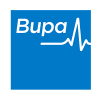Award winning dermatology service, with over 20 years on experience
Short waiting lists, on some occasions offering same week appointments
Safe environment, in Care Quality Commission approved facilities
Eczema Treatments Include:
eczema clinic shrewsbury
Eczema is a condition which causes the skin to become dry, itchy and cracked. It is most common in children and can improve over time. Adults who suffer, often find that they still have flare-ups of eczema during periods of stress.
The most common form of eczema is atopic eczema, which can affect any part of the body but is often found inside the elbows, knees, on the neck, hands, cheeks, and scalp.
Eczema and dermatitis mean the same thing; inflammation of the skin characterised by redness, swelling, and itching. In the chronic or persistent form, regular rubbing of the skin through itching and scratching, leads to thickening or ‘lichenification’, scaling and post-inflammatory darkening of the skin.
Alternative names: Atopic eczema, dermatitis, skin allergy, contact dermatitis, lichen simplex, nodular prurigo, sensitive skin, seborrhoeic dermatitis, asteototic eczema, constitutional eczema, allergic eczema, irritant dermatitis, venous eczema, stasis dermatitis, dishydrotic eczema, popholyx eczema.
WHAT CAUSES ECZEMA?
The cause of atopic eczema is sadly unknown. It often runs alongside other conditions including asthma and hay fever, and flare-ups may be triggered by things that come into contact with the skin like soap or laundry detergent. Stress, the weather, and occasionally food allergies can all cause flare-ups. There are many different causes for the different types of eczema.
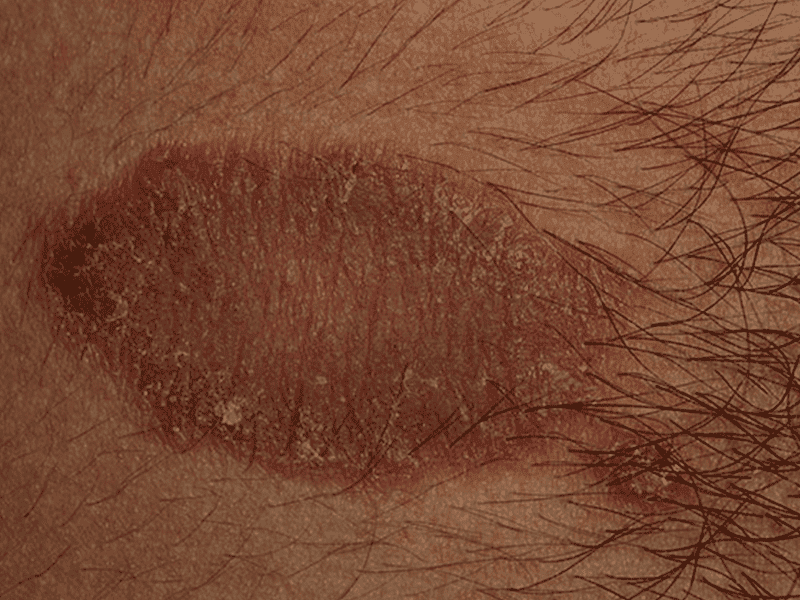
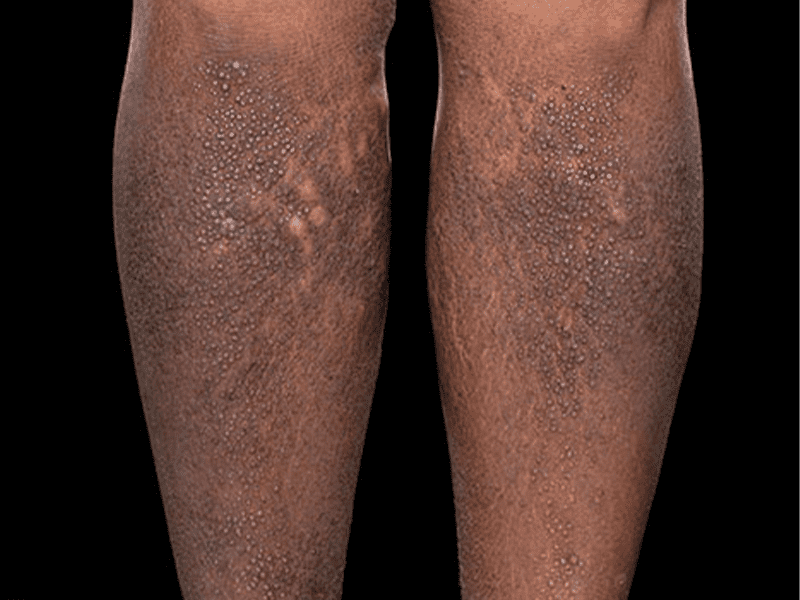
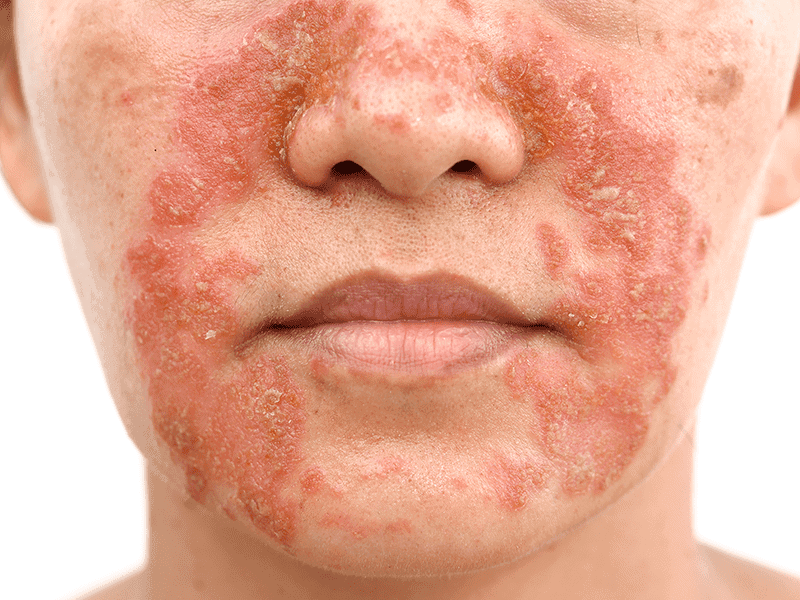
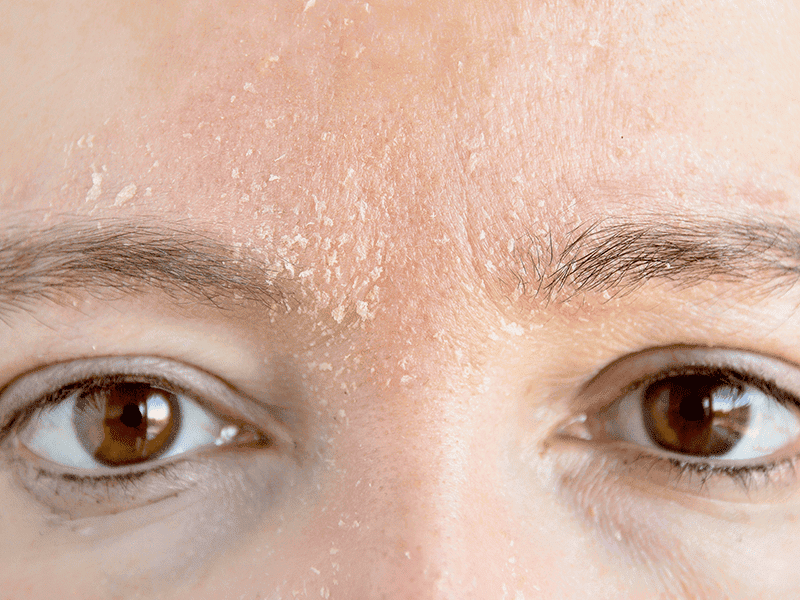
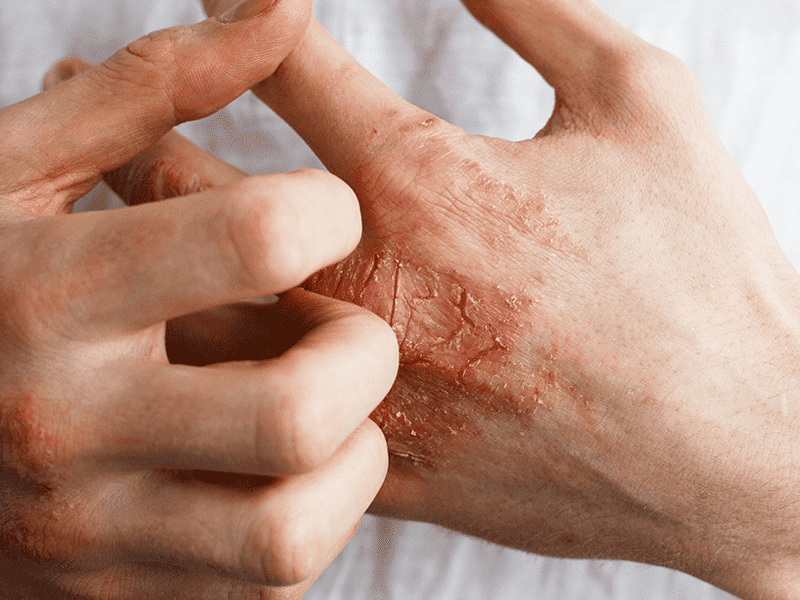
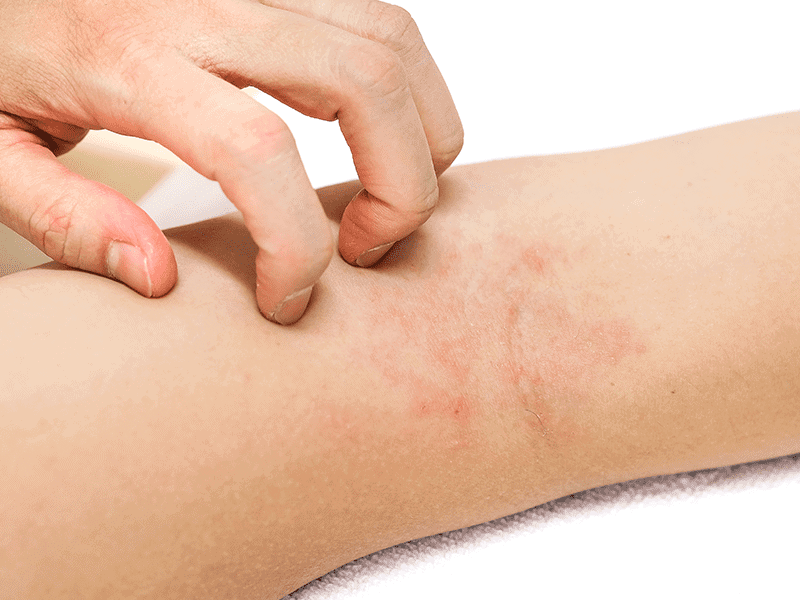
WHAT ARE THE SYMPTOMS/TYPES OF ECZEMA?
There are many different types of eczema, all of which cause the irritating symptoms of dryness, itchiness and redness. It is important to identify which type of eczema you have so you can identify the triggers and the right treatment can be provided. A consultant dermatologist will be able to diagnose your eczema and recommend the most suited treatment for you.
ATOPIC ECZEMA
The most common form of eczema is atopic eczema, which can affect any part of the body but is often found inside the elbows, knees, on the neck, hands, cheeks, and scalp. The cause of atopic eczema is unknown, but it often runs alongside other conditions including asthma and hay fever, and flare-ups are triggered by things such as soap, laundry detergent, stress, the weather, and occasionally food allergies.
DISCOID ECZEMA
This occurs in oval or circular patches on the skin. This eczema is usually found on the arms, body or legs and doesn’t tend to be seen on the face of the scalp. Unlike other forms of eczema, discoid eczema is most common in adults and starts with a few spots which join up to form pink or red patches which are swollen, blistered and very itchy.
VARICOSE ECZEMA
Varicose, or gravitational eczema appears as red, blistering, cracked or crusted skin in the lower legs where blood has collected and caused swelling which places pressure on the skin. Varicose eczema most commonly affects the lower legs and is caused by circulation problems so you are at higher risk of developing this condition if you have had a blood clot, varicose veins or if you are overweight.
CONTACT DERMATITIS
This occurs when the skin comes into contact with a particular substance. Common substances which cause contact dermatitis include soaps, detergents, bleach, paint, jewelry and certain plants or raw foods. The appearance of the eczema is very similar to atopic eczema, but you will notice flare ups in response to contact with particular irritants.
SEBORRHOEIC ECZEMA
Seborrhoeic eczema appears as red, scaly patches which develop on the scalp, ears, eyebrows, and the sides of the nose. Unlike many forms of eczema, this is not the result of an allergy and people of any age can develop the condition. Common triggers include stress, hormonal changes and dry or cold weather.
POMPHOLYX ECZEMA
This form of eczema is characterised by tiny blisters that erupt on the palms of the hands and is caused by allergies, having damp hands and feet or stress. It creates watery blisters found on the fingers, toes, palms, and soles of the feet, which can be very itchy and painful if they burst.
WHAT ECZEMA TREATMENTS ARE AVAILABLE?
Although eczema isn’t life-threatening, it can affect your quality of life as a sufferer. Flare-ups of eczema can be very itchy and uncomfortable; scratching the skin provides immediate short-term relief, but ultimately prolongs the problem by introducing bacteria to the broken skin and causing further infection and inflammation.
St Michael’s Clinic in Shrewsbury specialises in treating skin conditions and rashes including eczema. We can provide you with a course of eczema treatments to deal with flare-ups and ongoing symptoms, as well as advice on how to manage your Eczema and minimise future flare-ups.
The types of treatments we usually recommend include the most appropriate moisturising creams and prescription medications which come in the form of topical products or oral medication. These are used to help control the inflammation and manage the symptoms.
FREQUENTLY ASKED QUESTIONS
WHAT DOES ECZEMA LOOK LIKE?
Acute eczema is red with swelling of the skin, sometimes to the point of tiny blisters or vesicles appearing. It is often symmetrically distributed. Chronic eczema that has been rubbed repeatedly might be thickened and darkened.
HOW MIGHT IT AFFECT ME?
The key feature of eczema is that it is itchy. This can be a minor distraction or a major feature that interferes with your life and prevent sleeping, working and concentration. In children it can prevent sleep which causes unhappiness at home. The condition can cause redness and thickening of the skin which might affect one’s appearance and confidence.
CAN ECZEMA BE CURED?
There is currently no known cure for eczema, though many articles in the media suggest otherwise. Treatment is focussed on the symptoms and minimising the triggers.
REQUEST A CALL BACK
Please fill in this form and one of our team will give you a call back to arrange a consultation with one of our expert dermatologists.
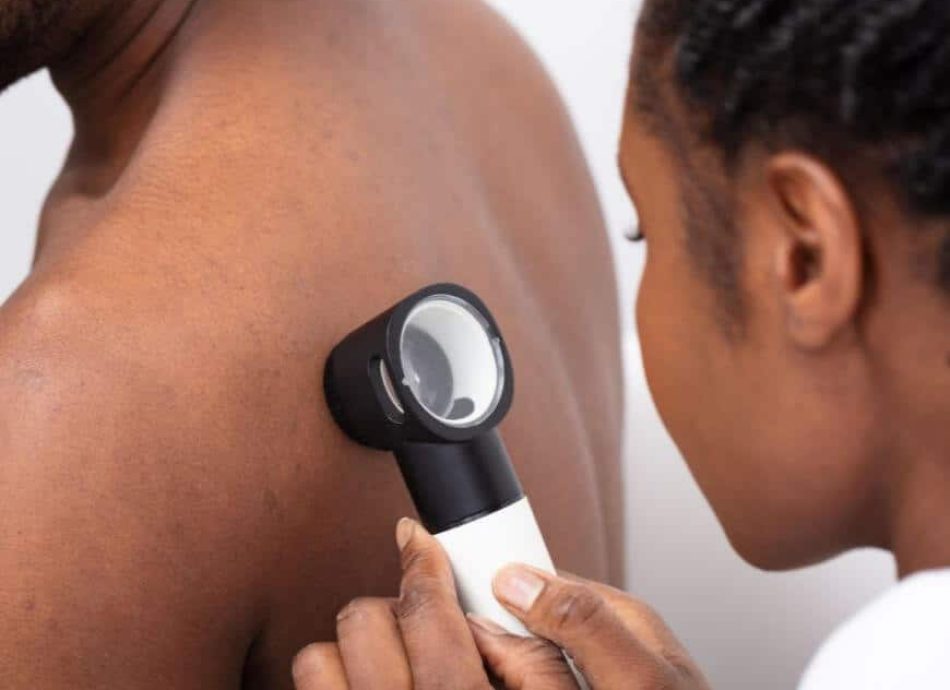
HEAR FROM OUR PATIENTS
WHY TREAT YOUR ECZEMA AT St Michael's Clinic?
Here at St. Michael’s Clinic, Shrewsbury’s leading private skin and laser treatment clinic, our experts are specialists in all aspects of dermatology, skin cancer, anti-ageing and beauty treatments. We are able to offer NHS patients consultant-led dermatology services in Shrewsbury.
St. Michael’s Clinic is regulated by the Care Quality Commission, ensuring the best level of treatment is provided to you in a safe environment. We are part of the Dermatology Partnership, a leading group of dermatology clinics, defined by clinical excellence and focusing on leading dermatological care.
Eczema Treatment Process:
Book Eczema Assessment
Contact us to arrange a no-obligation consultation with our experienced acne specialist who will examine and discuss your stage of eczema.
Appropriate Treatment Identified
There are a wide range of eczema treatment options available depending on the severity and location of your eczema. Our experienced dermatologist will explain all of your treatment options and help you to decide the best programme for you.
Treatment Begins
Once an appropriate treatment has been agreed upon, the treatment programme begins, and you’ll be well on your way to a healthier, happier skin. Results will likely appear within the timeframe suggested by your eczema specialist.



